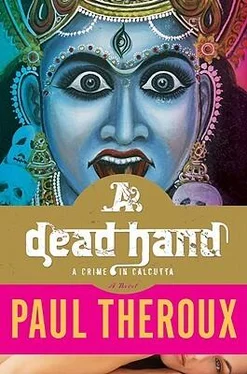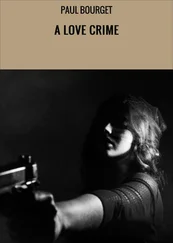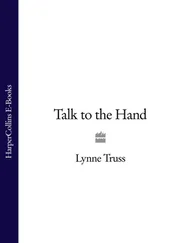That was why, when I saw the door of the wardrobe flicker forth — the long narrow mirror on the door catching the light from the street — I took it to be just another nightmare effect of those yellow lamps. But no, the mirror was still moving in one direction, catching on its edge the reflection of my pale popeyed face. I didn't breathe, I didn't move. My body was convulsed with anxiety, tangled in the damp sheets. I was still fully clothed. The mirror glinted, seemed to wink at me, swung out wider, and then came the tuneless clang of the wire hangers inside the wardrobe, like cheap wind chimes stirred by a light breeze.
Swelling like blobby ectoplasm — the sight was unearthly — a crouching shadow bobbed and rippled toward the door of my room as I watched in horror. I'd double-locked the door after Ramachandra left so that I wouldn't be interrupted in my writing. That seemed so innocent now. The handle resisted with a click, the shadow grunted, then whined, frustrated air straining in its sinuses, another little whinny of regret. Something in those sounds spoke of weakness.
I sprang out of bed and rushed at the figure, which was half shadow, half substance, and easily knocked it down with a thump. I was prepared to push again, but the lumpy shadow began pleading in a shrieky girlish whisper.
"Please don't hurt me. Please."
It was a male voice. My eyes were used to the dark; his were not. He lay tumbled to the floor like a small bundle.
"What are you doing here?"
He was still pleading through his fingers, his hands over his face. I pulled at his hands and his cell phone dropped to the floor. I knew it was a cell phone because it had opened when I snatched at him, and it was lit and lying at a convenient angle on the floor to illuminate Rajat, curled into a ball and whimpering.
"I'm hurt. I've broken something."
But he wasn't hurt. He was cowering, afraid that, standing over him, I'd kick him, which was what I wanted to do.
"Please let me go."
He spoke with an odd decorum, and rather softly, because he did not want to rouse anyone in the hotel. He remained on the floor, obstinate, stupid in fear. I switched on the overhead light, and under the shadows of the turning fan blades Rajat lay, so like a scrawny carcass that I was at once reminded of my mission: identifying the small body in the other hotel room.
"Tell me why you came here."
He covered his face and whimpered into his fingers.
"Never mind. I know. You're looking for any incriminating evidence that I've found. You suspect I've got something on you."
"No." It was less a distinct word than a groan of misery, something like Aw.
"You invited me to visit the Lodge to see Mrs. Unger so you'd have time to come here and search my room."
That Aw again, more anguished.
"But you didn't count on my coming back early—" I stopped myself before telling him that my session with Mrs. Unger was a turnoff that left me so doubtful and suspicious I'd hurried back to my room. Now I had a whiff of mothballs rising from him.
"You must have been in that wardrobe a long time."
"Please don't tell Ma."
"That you came here?"
"Or that you found anything to implicate me. I know it looks bad, but" — he rolled over and groaned into the floor—"I did not murder that child."
"Who did?"
He began to speak, he choked up, then he squealed, "I do not know. I had no hand in it."
"Was it Mrs. Unger?"
"Absolutely not," he said, shaking off his tears. "She is pure. She is steeped in nectar!"
Even in the heat, in this harsh light, with Rajat on the floor beneath me, I smiled at this statement, and in my reflex of disbelief I kicked him in the arm.
"Sorry. I couldn't help it."
"Ma helps these poor children," he said, his voice strained from my kick. "She is their mother." He had become a little calmer — was it my kick? "You saw the child when you arrived."
"The little girl being taken away," I said. "Her name is Usha."
"I don't know her name. I only know that she was being taken."
Now I understood. I said, "You wanted me to witness that. You wanted me to watch the American woman take her away from Mrs. Unger."
He didn't say no. He seemed to grow smaller on the floor. He was whimpering again. It seemed that every time I mentioned Mrs. Unger's name he grew fearful.
"It happens all the time," I said. "Mrs. Unger sells them. Doesn't she?"
"There are many," he said. "It is her greatness."
Rajat, still contracting, now a tiny bundle with a head, began to cry.
"You knew I'd see that, and you knew I'd be so preoccupied with Mrs. Unger that you'd be able to search my room. Who did you bribe to get in here?" But he didn't reply. He was still sniveling. "I came back early. I surprised you, and so you hid in the wardrobe. You're lucky I didn't hit you harder, you little shit."
My bullying him made him cry more miserably, and I began to feel sorry for him. He was murmuring "Please."
"I want you to tell me everything you know about Mrs. Unger." I stood over him. His murmuring had grown urgent, as though in a kind of panic he thought I was going to kick him again. This made me feel like a monster, and while it gave me a sense of power I had never felt before, it both embarrassed me and made me feel reckless.
"Ma is good. Ma is generous."
"You're afraid of her, afraid she'll hear you."
"Ma hears everything."
The way he said that made him seem pitiful. I said, "She can't hear you now."
"It is Ma's power," he said, turning his smeared face upward to the light.
"So why did you come here?"
"I wanted" — he swallowed and started again—"'I only wanted to save Charlie."
"From what? From whom?"
But he sniffed and turned his face to the floor.
"You wanted to save yourself. You're a sneak and a liar."
"Yes, I am a sneak. I have taken advantage of you by invading your room. But, sir, I am not a liar."
"Get up," I said.
He struggled to his feet. His face shone with tears and saliva. His greasy hair was pushed sideways, giving him a look of insanity, and his clothes — he was always so neat — were rumpled and twisted.
"Empty your pockets."
I was sorry I asked. What Indians carried in their pockets was so sad: an ID card showing his startled face, a torn bus ticket, a receipt ("From chemist shop, for my acne"), a tube of acne cream, some folded rupees, a few coins, a key chain holding three old keys, a small brass Ganesh on a loop, some gray pills of lint.
"Please don't report me."
"All I care about is the truth," I said. It was the echo of what I'd said to him in the lobby when we were having tea, and it sounded more pompous now. I was glad there was no one around to hear me.
"There is no god higher than truth," Rajat said. I stared at him, smiling again, amazed that he'd managed to say something more pompous than what I'd just said. Even standing bedraggled and defeated in my room, almost clownish in a tragic way, he was capable of being superbly sententious. And he became more serious. "But you will never find the truth here."
"Then why did you break into my room?"
"I wasn't looking for the truth. I was trying to find all those lies that people are telling about me."
"And what about that little girl Usha? Isn't it true that I saw her taken away?"
"I don't know what you saw."
"I could call the police now."
"I beg you not to," he said, and actually assumed the cringing posture of a bhikhiri , a beggar.
"Put that stuff back in your pockets," I said, and as he picked it up, pinching at the lint, I added, "Now get out."
I unbolted and unlocked the door, and, wincing, he slipped out. But he held on to the doorjamb with his skinny fingers, hesitating.
Читать дальше












